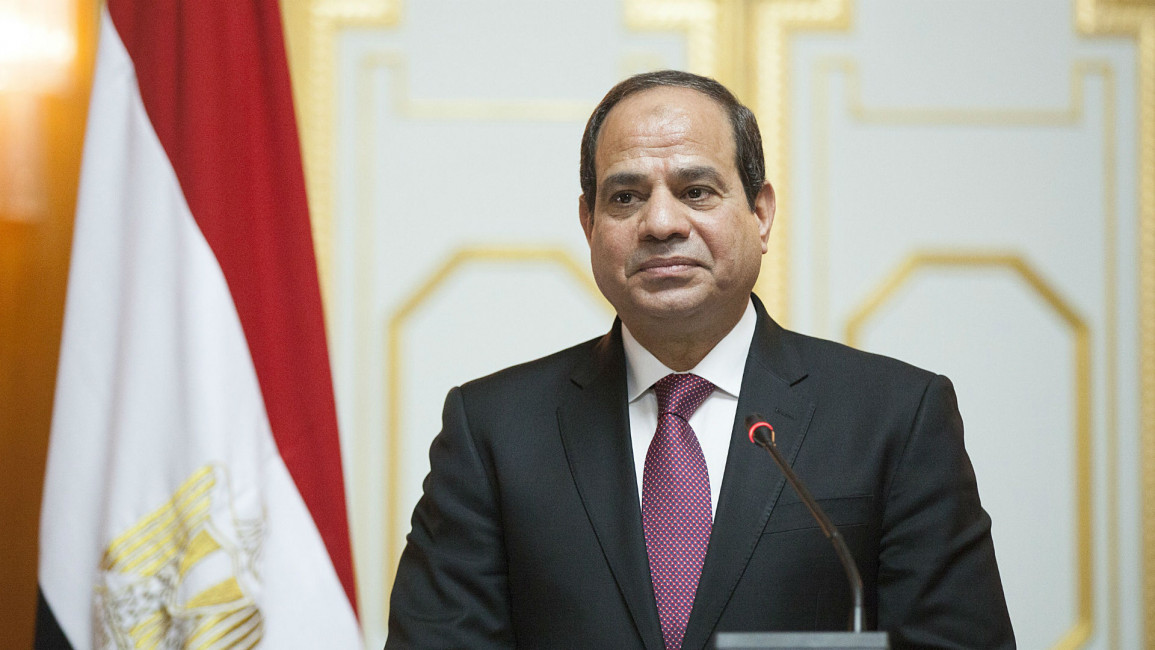Sisi vows to protect Egypt's water supply but rules out war over the Nile
Egyptian President Abdel Fattah al-Sisi on Monday vowed to protect Egypt's water supply while striving to maintain peace between the Nile upstream countries of Sudan and Ethiopia.
"Egypt will not go to war with its brothers," Sisi said on state television, although Cairo fears its water supply will be affected by Ethiopia's Grand Renaissance Dam.
Ethiopia began building the dam in 2012 and was initially expected to commission it in 2017. But Ethiopian media reports say only about 60 percent has so far been built.
Egyptian Foreign Minister Sameh Shoukry visited the Ethiopian capital last month for talks on the dam project on the Blue Nile.
Egypt relies almost totally on the Nile for irrigation and drinking water, and says it has "historic rights" to the river, guaranteed by treaties from 1929 and 1959, as well as the power to veto upstream projects.
Sisi also stressed that Egypt was investing in its military to protect national security.
"This is a national security need... You have military power to protect you, to protect this peace I'm talking about," said Sisi, himself a former armed forces chief who first came to power through a military coup against democratically elected President Mohamed Morsi.
"We always make sure that we stay within our borders, not conspire against anyone, not interfere in others' affairs," he said.
Sisi said his message was directed at Egyptians as well as "our brothers in Sudan and in Ethiopia so that the issue becomes clear for them".
The Blue and the White Nile tributaries converge in Sudan's capital Khartoum and from there run north through Egypt to the Mediterranean.
The dam in Ethiopia is designed to feed a hydroelectric project to produce 6,000 megawatts of power - the equivalent of six nuclear-powered plants.
Egypt believes Sudan is supportive towards Ethiopia's position in the dam dispute.
Egypt's administration of the Halayeb triangle, which lies near the Red Sea in a mineral-rich border region, is also a bone of contention with Sudan.
Khartoum says Halayeb has been part of its sovereign territory since shortly after independence in 1956, accusing Egypt of occupying it.
Last May, Sudan banned imports of Egyptian agricultural and animal products, and Khartoum recalled its ambassador from Cairo for "consultations" in January.
In December, Turkey and Sudan agreed that Ankara would rebuild a ruined Ottoman port city on Sudan's Red Sea coast and construct a dock for military and civilian vessels.
Egypt reacted suspiciously to the plan, which it views as Turkey's attempt to expand its influence in the region.



